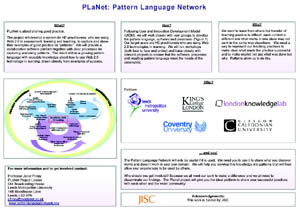
"Coffee was drunk standing up in groups in the foyer space, and online activities, texting etc took place sitting in the seminar room, where it was darker, and the rows of chairs made for a kind of anonimity"
My first observation, was that participants spontaneously occupied the two spaces available to them differently. Coffee was drunk standing up in groups in the foyer space, and online activities, texting etc took place sitting in the seminar room, where it was darker, and the rows of chairs made for a kind of anonymity. I think this observation was a result of a preconception of mine (screens as walls between real spaces) I didn’t manage to shake this preconception off all day, and it is reflected in a lot of the drawings.
As an artist, having groups of people who are cool with the idea of being drawn while they engage in a group activity was a great privilege. It picked up on a thread of work which I haven’t followed for quite some time – drawing crowds. I really enjoyed the challenge of working fast, and setting new challenges for myself along the way. i.e. sometimes drawing a scene that actually happened, sometimes drawing a scene that was being described, sometimes drawing a cartoon representation of the ideas being discussed.

sketches from the workshop.
The participants were very open to being drawn, and open to the idea that the process might be useful, even though I couldn’t come up with a short rational explanation of why it might be useful.
The fact that I joined in with the ‘draw three versions of yourself’ exercise meant that I thought of myself as part of the group I worked with first, although this was hard to sustain as my attention was divided with the drawing and moving to other groups.

"3 faces game of identity" game
I thought of myself as a ‘provoking’ presence, and also seized upon the work ‘lurker’ when it came up in one of the groups. I also drew Yishay and Steven as lurkers.
I think I came up with the idea of me being a provoking presence because I felt a slight frustration with the group for (as I saw it) resisting the idea of turning their contributions into anything that I would recognise as a story. They seemed much more interested in discussing the issues raised by the contributions in an open ended way. This I interpreted as evading the call to form a story because doing so would exclude all other ‘interesting’ avenues of discussion. I felt the call to form a story was the point of the workshop, not debating solutions. I didn’t express this directly, but attempted to ‘retell’ one of the contributions as a story such as one might see in a movie. This caused a slight pause among the participants, and they then returned to the discursive. No one picked this up by attempting to retell the story from their own imagination and experience, and I didn’t attempt this again (though I harboured the feeling that it would have been useful I had).

you can't be silent, there's no point in being there / why were they following me when I wasn't there? - Digital Identity Panic
I quite quickly started to imagine the workshop as an online community – potentially anyone could have walked in and joined in. People formed and reformed into little discussion groups. Everyone was very open with their opinions. I guess they were professional opinion-formers.
I was very taken with the idea of people only being partially or incompletely represented to each other online (it seemed as if there was a lot of desire to take control of this process, and a feeling of conflict that there was something wrong with the idea of controlling it – ie compromising what was good about the internet).
My drawings started to reflect this. I abandoned the idea that the drawing might represent the whole person, and concentrated only on single gestures, postures and groupings – along with representations of what was being said. I was conscious that sometimes my representations of what was being said was not necessarily true to the spirit of the speaker, but the slant of my listening. This added to my feeling of being a lurker.
The one exception to this was when one of the participants asked me to draw two situations their group had come up with to sum up the dilemma they were discussing (a pub and a sealed room). I felt very grateful to be asked to do something useful and achievable at this time of the day!

Lurking is important when engaging with new social platforms/services, especially when deciding what is a legitimate projection/use of identity. Space For Lurking
Martin Jones 12th Jan 09











